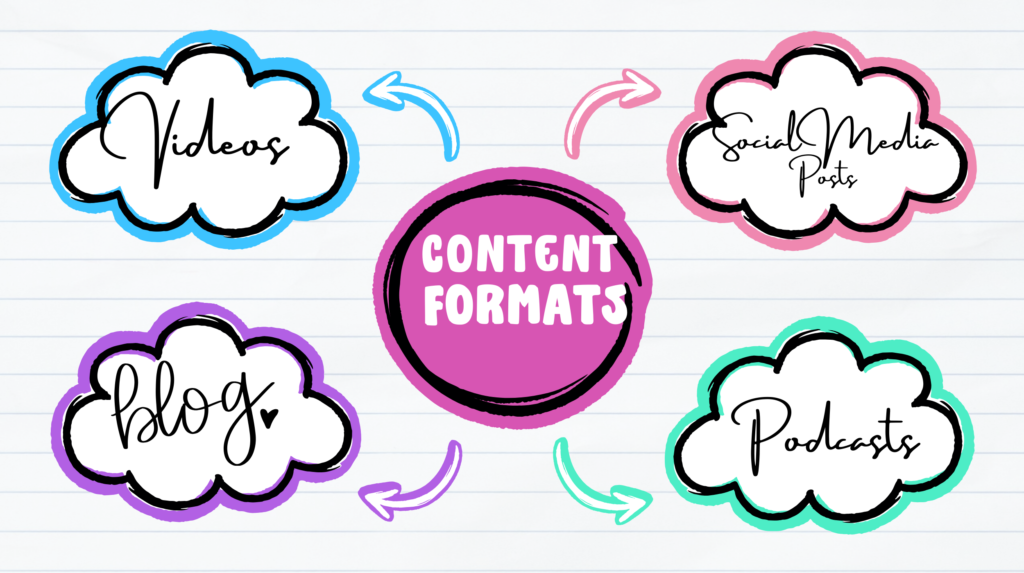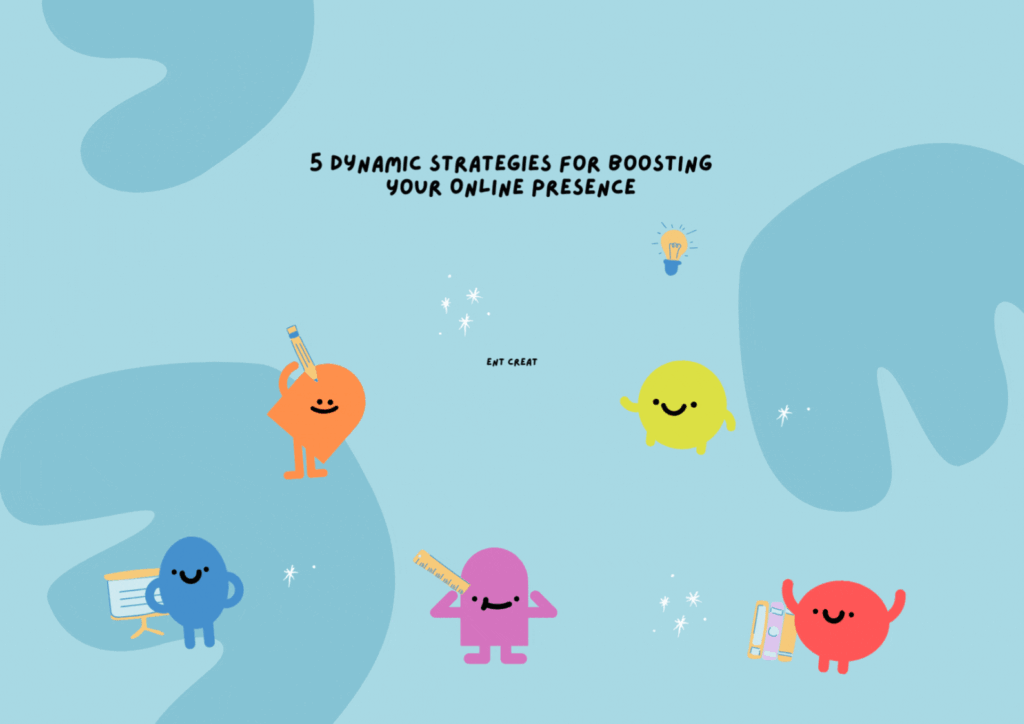/

Introduction to Content Marketing:
In a digital era inundated with advertisements, content marketing stands out as a beacon of authenticity and value. It’s more than just a marketing strategy; it’s a narrative crafted to resonate with audiences on a deeper level. In this introduction, we delve into the essence of content marketing, exploring its transformative power in reaching and engaging American audiences effectively.
Understanding the American Audience: Insights to Inform Your Content Strategy
In the vast and diverse landscape of American culture, understanding the nuances of your target audience is essential for crafting content that truly resonates. From bustling urban centers to rural communities, from Gen Z to Baby Boomers, American audiences encompass a wide spectrum of demographics, behaviors, and preferences.
Demographic Diversity: The American population is incredibly diverse, comprising people of various ethnicities, ages, genders, socioeconomic backgrounds, and geographic locations. From the bustling streets of New York City to the quiet suburbs of the Midwest, each region offers unique insights into the preferences and priorities of its residents.
Cultural Nuances: Beyond demographics, cultural nuances play a significant role in shaping the preferences and behaviors of American audiences. From regional cuisines to holiday traditions, cultural factors influence how individuals perceive and engage with content. Understanding these nuances allows marketers to tailor their messaging in a way that resonates authentically with their target audience.
Evolving Preferences: As technology continues to advance and societal trends evolve, so too do the preferences of American consumers. From the rise of digital media consumption to the growing demand for personalized experiences, staying abreast of these changes is essential for developing content that remains relevant and impactful.
By delving deep into the intricacies of the American audience landscape, marketers can gain valuable insights that inform their content strategy. Whether it’s crafting culturally relevant messaging, targeting specific demographic segments, or leveraging emerging trends, understanding the American audience is the cornerstone of effective content marketing.
Developing a Content Marketing Strategy: A Blueprint for Success
Crafting a content marketing strategy is akin to architecting a blueprint for success in the digital realm. It involves a meticulous blend of creativity, analysis, and strategic planning to engage audiences, drive conversions, and ultimately, achieve business objectives. In this section, we delve into the key components of developing a robust content marketing strategy that resonates with your target audience and delivers measurable results.
Defining Goals and Objectives: The first step in developing a content marketing strategy is to define clear and measurable goals. Whether it’s increasing brand awareness, driving website traffic, generating leads, or boosting sales, establishing concrete objectives provides a roadmap for your content efforts and ensures alignment with overarching business objectives.
Audience Segmentation and Targeting: Understanding your target audience is paramount to the success of your content marketing strategy. Conduct thorough research to identify key demographic segments, psychographic traits, pain points, and preferences of your target audience. By segmenting your audience into distinct personas, you can tailor your content to address their specific needs and interests effectively.
Content Ideation and Planning: With goals defined and audience insights in hand, it’s time to brainstorm content ideas and develop a comprehensive content calendar. Consider the various stages of the buyer’s journey and create content that educates, entertains, or inspires your audience at each touchpoint. Leverage a mix of formats, such as blog posts, videos, infographics, podcasts, and social media posts, to diversify your content offering and cater to different audience preferences.
Creating Engaging Content: Captivating Your Audience with Compelling Storytelling
In the ever-expanding digital landscape, creating content that cuts through the noise and captivates your audience’s attention is paramount. Engaging content goes beyond mere information dissemination; it tells a story, sparks emotions, and fosters connections with your audience. In this section, we explore strategies for creating content that resonates with your audience and drives meaningful engagement.
Crafting Compelling Storytelling: At the heart of engaging content lies compelling storytelling. Stories have the power to evoke emotions, stimulate curiosity, and leave a lasting impression on your audience. Whether it’s sharing customer success stories, narrating personal anecdotes, or weaving narratives around your brand values, storytelling humanizes your content and makes it relatable to your audience.
Utilizing Multimedia Content: In a visually-driven world, multimedia content reigns supreme in capturing audience attention and conveying complex ideas effectively. Embrace a diverse range of content formats, including videos, infographics, animations, and interactive elements, to cater to different learning styles and preferences. By incorporating visuals, audio, and interactivity into your content, you can enhance engagement and leave a memorable impression on your audience.
Writing for Different Platforms and Formats: Each digital platform presents unique opportunities and challenges for content creators. Tailor your content to suit the specific characteristics and requirements of each platform, whether it’s crafting concise and compelling headlines for social media posts, optimizing blog posts for search engine visibility, or adapting content for mobile consumption. By optimizing your content for different platforms and formats, you can reach a wider audience and maximize engagement across channels.
Leveraging Content Distribution Channels: Amplifying Your Reach Across Digital Platforms
Creating exceptional content is just the first step; the next challenge lies in effectively distributing that content to your target audience. Content distribution channels serve as the conduits through which your content reaches its intended recipients, enabling you to amplify your reach and maximize engagement. In this section, we explore strategies for leveraging various distribution channels to ensure that your content reaches the right audience at the right time.
Social Media Marketing Strategies: Social media platforms offer unparalleled opportunities for content distribution, allowing you to reach vast audiences and foster meaningful interactions. Develop a comprehensive social media marketing strategy that leverages platforms such as Facebook, Instagram, Twitter, LinkedIn, and TikTok to share your content, engage with followers, and cultivate a loyal community around your brand.
Search Engine Optimization (SEO) Tactics: Optimizing your content for search engines is essential for improving its visibility and driving organic traffic to your website. Implement SEO best practices, such as keyword research, on-page optimization, and link building, to ensure that your content ranks prominently in search engine results pages (SERPs) for relevant queries. By appearing higher in search results, you can attract more qualified leads and expand your audience reach.
Email Marketing Campaigns: Email remains one of the most effective channels for distributing content directly to your audience’s inbox. Develop targeted email marketing campaigns that deliver personalized content tailored to the interests and preferences of individual subscribers. Segment your email list based on demographic data, engagement history, and purchase behavior to ensure that each recipient receives content that resonates with them.
Measuring and Analyzing Content Performance: Unlocking Insights to Optimize Your Strategy
In the dynamic world of content marketing, measuring and analyzing performance metrics is essential for gauging the effectiveness of your efforts and informing future strategy. By leveraging data-driven insights, you can identify what’s working, what’s not, and where opportunities for improvement lie. In this section, we delve into the key metrics to track, tools for analysis, and strategies for optimizing your content marketing strategy based on performance data.
Key Performance Indicators (KPIs): Identifying the right KPIs is critical for evaluating the success of your content marketing efforts. Common KPIs include website traffic, engagement metrics (such as time on page, bounce rate, and social shares), conversion rates, lead generation, and return on investment (ROI). By tracking these metrics, you can assess the impact of your content across the customer journey and measure its contribution to business objectives.
Tools and Metrics for Tracking Success: A myriad of tools and analytics platforms are available to help you track and analyze content performance. Google Analytics provides comprehensive insights into website traffic, user behavior, and conversion data, while social media analytics tools offer valuable metrics on audience engagement and reach. Email marketing platforms, CRM systems, and content management systems (CMS) also provide valuable data to inform your analysis.
Analyzing Data to Inform Future Strategies: Once you’ve gathered performance data, it’s essential to analyze it systematically to extract actionable insights. Look for patterns, trends, and correlations in the data to identify areas of strength and areas for improvement. Use A/B testing and experimentation to validate hypotheses and refine your content strategy based on empirical evidence. By iterating on your approach and optimizing content based on data-driven insights, you can continuously improve performance and drive better results.
Case Studies: Unveiling the Secrets of Successful Content Marketing Campaigns
In the realm of content marketing, success stories abound, showcasing the transformative power of strategic storytelling and audience engagement. Case studies offer valuable insights into the strategies, tactics, and outcomes of real-world content marketing campaigns, serving as inspiration for marketers seeking to replicate their success. In this section, we explore notable case studies that exemplify the principles of effective content marketing and reveal the secrets behind their triumphs.
Case Study 1: Red Bull’s Stratos Space Jump Red Bull’s Stratos Space Jump campaign stands as a testament to the brand’s prowess in creating captivating content that resonates with its audience. By sponsoring Austrian skydiver Felix Baumgartner’s record-breaking freefall from the stratosphere, Red Bull captured the world’s attention and generated widespread buzz across social media platforms. The campaign exemplified the brand’s commitment to pushing the boundaries of human potential while aligning seamlessly with its high-energy, adventurous brand image.
Case Study 2: Blendtec’s “Will It Blend?” Series Blendtec’s “Will It Blend?” series revolutionized content marketing with its unconventional approach to product demonstrations. By blending various objects, from iPhones to golf balls, in its high-powered blenders, Blendtec showcased the strength and durability of its products in a humorous and engaging way. The viral success of the campaign catapulted Blendtec to international fame and drove significant increases in sales and brand awareness.
Case Study 3: Dollar Shave Club’s Viral Video Dollar Shave Club disrupted the razor industry with its now-iconic viral video, which humorously depicted the brand’s value proposition and unique selling points. By leveraging witty dialogue, irreverent humor, and a charismatic founder, Dollar Shave Club captured the attention of millions and quickly amassed a loyal following. The video’s success catapulted the brand from obscurity to prominence, illustrating the power of compelling storytelling in building brand identity and driving customer acquisition.
Key Takeaways: These case studies offer valuable insights into the strategies and tactics that drive successful content marketing campaigns. From leveraging high-profile stunts to embracing humor and authenticity, each example highlights the importance of creativity, authenticity, and audience-centricity in capturing attention and driving meaningful results.
Challenges and Ethical Considerations in Content Marketing: Navigating the Complexities of a Digital Landscape
While content marketing offers immense opportunities for brands to connect with their audience and drive meaningful engagement, it also presents a myriad of challenges and ethical considerations. In this section, we explore the obstacles that marketers face in executing successful content marketing campaigns and the ethical dilemmas that arise in the pursuit of audience engagement and brand promotion.
Challenge 1: Content Overload and Attention Scarcity In an era of information overload, capturing and retaining audience attention is increasingly challenging. With countless brands vying for consumers’ limited attention spans, cutting through the noise and standing out from the crowd requires creativity, relevance, and authenticity.
Challenge 2: Maintaining Transparency and Authenticity Maintaining transparency and authenticity is essential for building trust and credibility with your audience. In an age of skepticism and distrust, consumers demand honesty and integrity from the brands they engage with. Marketers must ensure that their content is truthful, accurate, and transparent about any commercial interests or affiliations.
Challenge 3: Balancing Promotional and Value-Driven Content Finding the right balance between promotional content and value-driven content is crucial for maintaining audience engagement and loyalty. While promotional content serves to promote products or services, value-driven content provides educational, entertaining, or informative value to the audience. Striking the right balance between the two is essential for building long-term relationships with your audience.
Ethical Consideration 1: Data Privacy and Consumer Consent Respecting consumer privacy and obtaining proper consent for data collection and usage are paramount ethical considerations in content marketing. Marketers must adhere to data protection regulations and industry best practices to safeguard consumer privacy rights and ensure transparency in data collection and usage practices.
Ethical Consideration 2: Avoiding Deceptive or Manipulative Tactics Using deceptive or manipulative tactics to persuade or influence consumers is unethical and can damage brand reputation and credibility. Marketers must refrain from employing clickbait, false advertising, or other deceptive practices that undermine consumer trust and integrity.
Ethical Consideration 3: Diversity, Inclusivity, and Representation Ensuring diversity, inclusivity, and representation in content marketing campaigns is essential for fostering a sense of belonging and inclusivity among diverse audience segments. Marketers must strive to represent diverse perspectives, cultures, and identities authentically and respectfully in their content to avoid perpetuating stereotypes or marginalizing underrepresented groups.
By acknowledging and addressing these challenges and ethical considerations, marketers can navigate the complexities of the digital landscape with integrity, responsibility, and respect for their audience.
Future Trends in Content Marketing: Anticipating the Evolution of Audience Engagement
As the digital landscape continues to evolve at a rapid pace, content marketers must stay ahead of the curve by embracing emerging trends and technologies. In this section, we explore the future of content marketing, highlighting key trends that are poised to shape the way brands engage with their audiences and deliver value in the years to come.
Trend 1: Interactive Content Experiences Interactive content experiences are becoming increasingly popular as brands seek to engage audiences in more immersive and participatory ways. From quizzes and polls to interactive videos and augmented reality (AR) experiences, interactive content allows users to actively engage with brands and personalize their journey, fostering deeper connections and driving higher levels of engagement.
Trend 2: Personalization at Scale Personalization has long been a cornerstone of effective marketing, but advancements in artificial intelligence (AI) and machine learning are taking personalization to new heights. By leveraging data insights and predictive analytics, brands can deliver hyper-targeted content experiences tailored to the individual preferences, behaviors, and interests of each user, driving higher conversion rates and customer satisfaction.
Trend 3: Voice Search Optimization With the rising popularity of voice-activated smart devices and virtual assistants, voice search optimization is becoming increasingly important for content marketers. Brands must optimize their content to align with natural language queries and conversational search patterns, ensuring that they remain visible and accessible to users who rely on voice search for information and assistance.
Trend 4: Content Sustainability and Social Responsibility In an era of heightened environmental and social consciousness, brands are increasingly expected to demonstrate their commitment to sustainability and social responsibility through their content marketing efforts. From eco-friendly packaging to cause-driven storytelling, brands that align their content with values of sustainability and social impact can build stronger connections with socially conscious consumers and differentiate themselves in the marketplace.
Trend 5: Emerging Platforms and Formats As new platforms and formats continue to emerge, content marketers must stay agile and adaptable to capitalize on emerging opportunities. From short-form video content on platforms like TikTok and Instagram Reels to live streaming and immersive experiences on platforms like Twitch and VR, brands that experiment with new formats and platforms can reach new audiences and stay ahead of the competition.
By embracing these future trends and staying attuned to evolving consumer preferences and technological advancements, content marketers can position themselves for success in an ever-changing digital landscape.
Conclusion: Key Takeaways and Actionable Insights
As we conclude our exploration of content marketing in the digital age, it’s essential to reflect on the key takeaways and actionable insights that can inform your future strategy and drive success in your content marketing efforts.
- Audience-Centric Approach: At the heart of effective content marketing lies a deep understanding of your audience’s needs, preferences, and behaviors. By prioritizing audience-centricity and delivering value-driven content that resonates with your target audience, you can foster stronger connections, drive engagement, and build brand loyalty.
- Creativity and Innovation: Content marketing is a dynamic and ever-evolving discipline that rewards creativity, innovation, and experimentation. Embrace emerging trends, technologies, and formats to captivate your audience’s attention and differentiate your brand in a crowded marketplace.
- Data-Driven Decision Making: Harness the power of data and analytics to gain actionable insights into your content performance and audience behavior. By tracking key metrics, analyzing trends, and iterating on your approach based on empirical evidence, you can continuously optimize your content strategy and drive better results.
- Transparency and Authenticity: Uphold principles of transparency, authenticity, and ethical conduct in your content marketing efforts. Build trust with your audience by being honest, transparent, and respectful in your communications, and avoid deceptive or manipulative tactics that undermine credibility.
- Agility and Adaptability: The digital landscape is constantly evolving, presenting both challenges and opportunities for content marketers. Stay agile and adaptable, and be prepared to pivot your strategy in response to changing consumer preferences, technological advancements, and market dynamics.
By embracing these key takeaways and actionable insights, you can position yourself for success in the dynamic and ever-changing world of content marketing. Remember to stay curious, stay creative, and stay committed to delivering value to your audience through compelling storytelling and engaging content experiences
Get Your FREE Consultation – Book Now
Follow Us on Instagram

